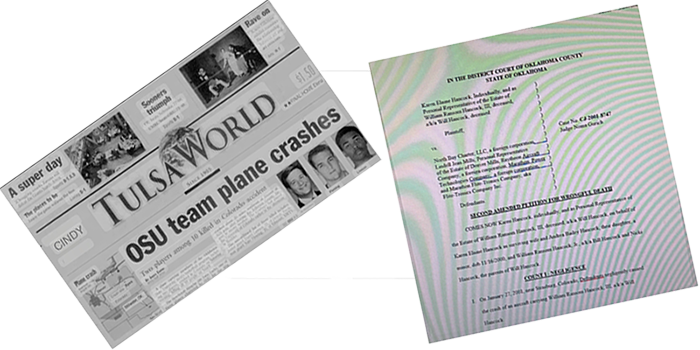Have you recently been injured due to someone else’s carelessness? If so, you may wonder if you have a valid personal injury case. Making an accurate determination is a complicated process. The first thing your personal injury attorney will need to establish is whether or not the other party was negligent. This article is an overview and will look at what negligence is and how it can impact your case.
What is Negligence?
For someone to be held liable for your injuries, their actions must have fallen below the standards of care that a reasonable person would have met in the same situation. This is known as negligence. For example, if you are walking across the street and a driver runs a red light and hits you, their actions would likely be considered personal injury negligence. On the other hand, if you were walking down the street and slipped on a patch of ice that had not been shoveled or salted, the property owner might not be found negligent because there was no way for them to know that the ice was there.
For negligence to occur, four main elements must be present: duty, breach of duty, causation, and damages.
Duty
The first element is duty. The plaintiff (the person filing the lawsuit) must prove that the defendant (the person being sued) owed them a duty of care. This means the defendant was obliged to act a certain way to avoid harming the plaintiff. For example, all drivers must operate their vehicles safely to avoid injuring other motorists.
Breach
The second element is breach. The plaintiff must show that the defendant breached their duty of care by failing to act as a reasonable person would have under similar circumstances. Returning to our earlier example, if a driver ran a red light and collided with another vehicle, they would be considered to have breached their duty of care by failing to act as a reasonable driver would have under those circumstances.
Causation
The third element is causation. The plaintiff must prove that the defendant’s breach of duty was the cause of their injuries. This means that the plaintiff would not have been injured by the defendant’s actions.
Damages
The fourth and final element is damages. The plaintiff must show that they suffered some type of loss or harm as a result of the defendant’s negligence. This could be physical injuries, emotional distress, property damage, or financial losses such as lost wages or medical bills.
If any of these elements is missing, there can be no negligence. For example, if the defendant did not owe the plaintiff a duty of care (say, for example, if you were hit by a car while trespassing on private property), then they cannot be held liable for your injuries-regardless of how unreasonable their actions may have been.
How Does Negligence Impact Your Personal Injury Case?
As mentioned above, negligence is necessary for liability in a personal injury case. If your attorney can establish that the other party was negligent, they will likely be held responsible for any damages you suffered due to their actions. These damages can include economic and non-economic losses such as medical bills, lost wages, pain and suffering, and more.
However, even if negligence can be established, some protections are still in place for defendants in personal injury cases. For example, many states have laws limiting how much money plaintiffs can recover for pain and suffering damages.
Additionally, suppose the plaintiff was partially at fault for their own injuries (say, they were jaywalking when they were hit by a car). In that case, they may have their damage award reduced by an amount proportional to their level of fault under what is known as comparative negligence laws. In some states, if the plaintiff is more than 50% at fault, they may be barred from receiving any damages at all.
Conclusion
If you’ve been injured due to someone else’s careless behavior, you may wonder whether you have a valid personal injury case. The first step in answering this question is to establish whether or not negligence occurred-and this blog post has hopefully given you a better understanding of what negligence is and how it can impact your case. Of course, this is just a general overview; for specific advice tailored to your unique situation, contact one of our highly qualified Attorneys at 580-224-0900 for a free consultation.


